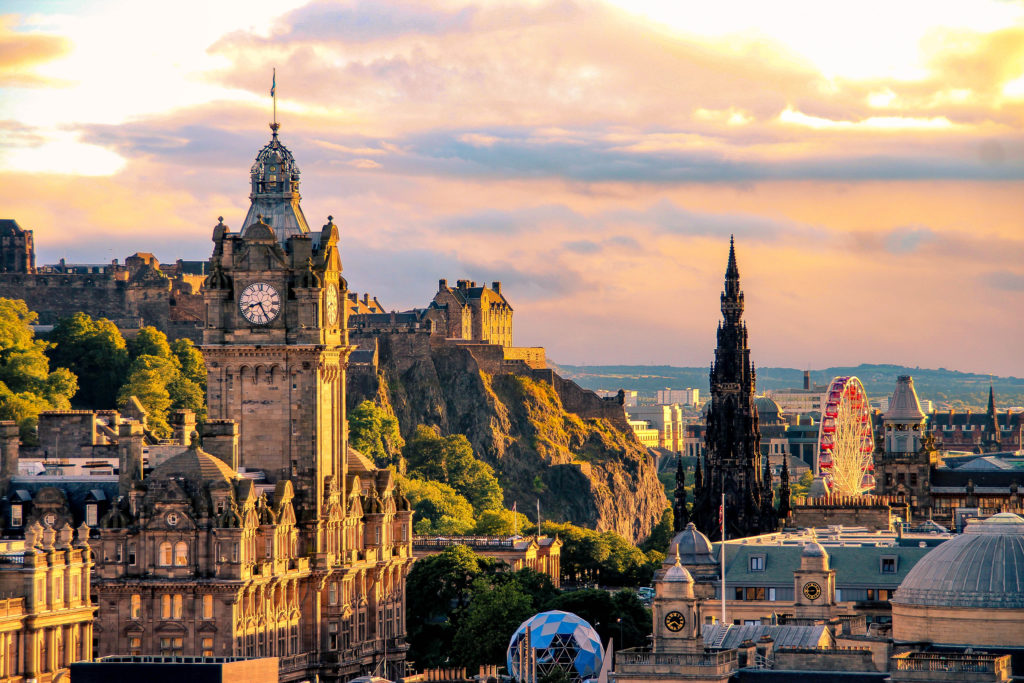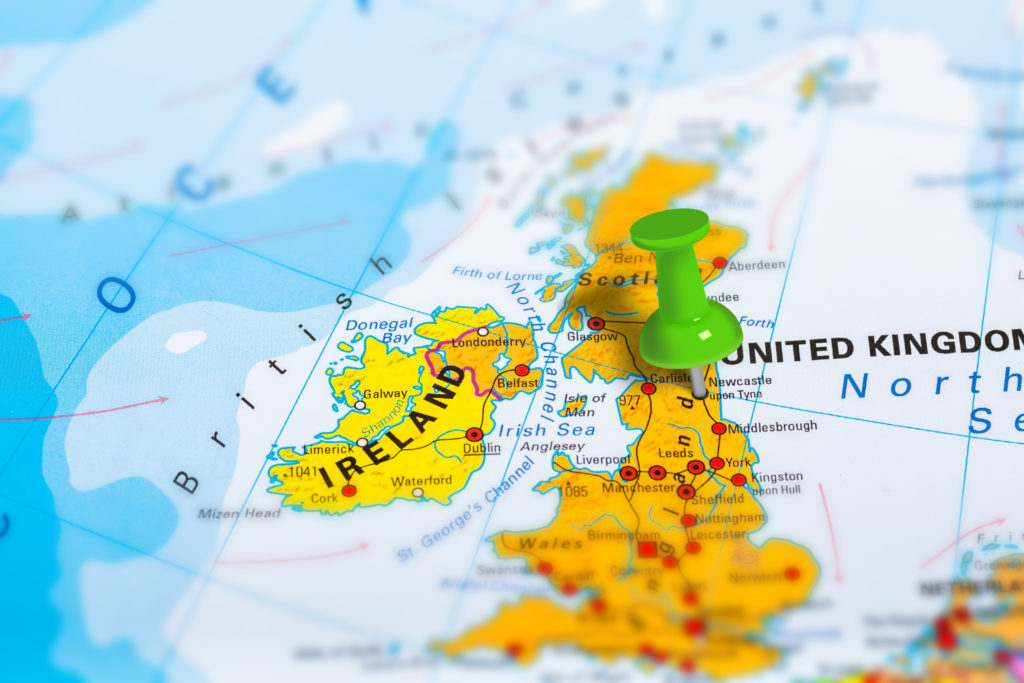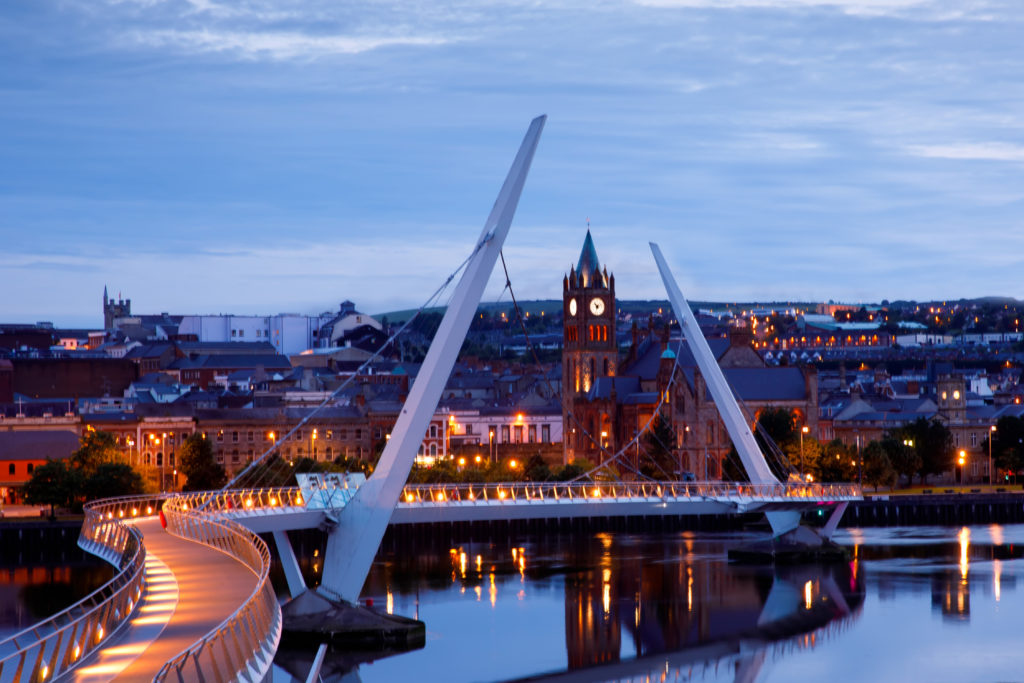Hello lovely students! Have you ever heard a British accent before? More than likely you probably heard an accent in received pronunciation (RP) which is also known as the Queen’s English, Standard English or BBC English. And it is not surprising. A lot of films such as Mary Poppins portray Britons as talking like His Majesty.
What if I were to tell you that this is most certainly not the case? Would you be shocked?
Well, there are 37 different accents in the UK as of the last count. Pretty surprising considering how small our island is, don’t you think?
These accents differ greatly from one another, and they vary depending on what county you are from, which there are a lot of on our isles. Take England, for instance, one of the sovereignties in the UK. There are 48 counties here. In Scotland, there are 33, in Wales 13 and in Ireland 6. So maybe it’s not so odd after all that there are so many different British accents.
Before we start looking at a few of them, why don’t I show you some historical facts about how the UK came to be?

A very brief history
Let’s first go back to 1,000 years ago to the year 1093. Norman conquerors conquested Southern Wales. Fast forward to 1284, and King Edward I conquested Southern Wales too and made it a principality.
So where do Scotland and Northern Ireland come into it?
Well, in 1707 under the Union Act, Scotland merged with England and Wales. This became known as the Kingdom of Great Britain.
Almost 100 years later in 1801, Great Britain and Ireland passed the Acts of Union, thus creating the United Kingdom of Great Britain and Ireland. However, in 1920, the Government of Ireland Act was passed which allowed for a separate government in Northern Ireland. This split Ireland as a country.
Northern Ireland is still part of the United Kingdom to this day, and all of this history is worth looking into.
Fun fact: The title Prince of Wales was first used by English heirs to the throne in 1301.
So now that we have the very brief history section out of the way about how the United Kingdom came to be, let’s check out some of our accents.

Types of British accents
Are you ready to learn about a few of the regional accents across the British isles? Take a peek below.
Southern England accents
Received pronunciation
Now, this is rightly or wrongly considered to be the Standard English accent. When you think of an English accent, chances are you probably think of this one. RP speakers tend to speak in Standard English so they avoid grammatical errors or slang.
It is not regionally specific at all. However, people who speak with this accent are deemed to be wealthy, well-educated or both and from the South. You must know, that this stereotype is not true at all.
To hear this accent, please watch theNetflix hit series The Crown or Downton Abbey.
Cockney
This is perhaps the second accent you think of when thinking of English accents. It is used a lot in Hollywood films such as My Fair Lady or Dick Van Dyke’s attempt in Mary Poppins. Its roots stem from working-class people in London’s East End. Think market traders or taxi drivers.
Cockney is also a distinctive dialect as they have their own language – cockney rhyming slang.
It’s amazing to listen to. For instance, in cockney rhyming slang apples and pears mean stairs.
To hear the cockney accent, please watch the British TV soap drama Eastenders.
Estuary English
Estuary English is spoken by those who live along the Thames estuary in Southeast England, mostly in Essex and Kent. The accent has a slight twang to it and falls somewhere in between RP and Cockney. If an o is at the end of a word it will be dragged out for a long time. Take the word no. Instead of simply being no, it would be noooooooo.
To hear the Estuary English accent, watch the reality show The Only Way is Essex or Gavin and Stacy.
West Country
This beautiful accent is spoken predominantly in Dorset, Somerset, Devon and Cornwall. It has a very rounded sound and the vowels seem to go up and down. It used to be associated with farming, but this narrative is slightly changing.
To hear the West Country accent, watch This Country or listen to Hagrid speak English in Harry Potter.
The Midlands
Brummy
This accent is found in Birmingham and its surrounding area. The Brummy accent is fairly nasally and has shorter vowels. This can be heard with words such as roof and tooth. Brummies pronounce them as ruf and tuf.
To hear the Brummy accent, watch Peaky Blinders or listen to Ozzy Osbourne speak.
Fun fact: Brummies are what you call people from Birmingham.
Northern England accents
Scouse
The scouse accent is a highly distinctive accent found in Liverpool and the surrounding Merseyside area. It is distinctive because it uses the glottal stop. What is a glottal stop you ask? Well, the glottis is the space between the vocal cords. When speaking with a scouse accent, this space is closed, stopping vibrations and emitting a cough-like sound when words are being said.
You can hear this in the scouse accent with words like car or custard. People with the scouse accent also elongate double vowels.
Fun fact: people from Liverpool are called Liverpudlians.
To hear the scouse accent, listen to an interview with The Beatles or a performance by British comedian John Bishop.
Geordie
People from Newcastle and the surrounding area speak with a Geordie accent, and they are called Geordies as well. The English spoken there differs slightly from what you may hear on the television as with all the other accents listed. But this accent is one of the UK’s favourites because it sounds warm and friendly.
The r’s at the end of words are generally not pronounced in the geordie accent and they become ah instead. So see you later becomes see you lat – ah. They also refer to Newcastle as the toon (the town).
To hear the Geordie accent, listen to British duo Ant and Dec, comedienne Sarah Millican or X-Factor judge, Cheryl Cole.
Yorkshire
Now the Yorkshire dialect should not all be together because Yorkshire itself is not one county. Yorkshire is a large area, with four counties which are South Yorkshire, North Yorkshire, West Yorkshire and the East Riding of Yorkshire.
It is referred to by locals as God’s own county. All across Yorkshire words ending in ee are pronounced with an eh sound. So funny becomes funneh. It is also common to hear ey up as a way to greet one another or the word to being shortened to t’.
To hear the Yorkshire accent, watch the British TV soap Emmerdale.
Welsh Accents
Cardiff
Cardiff English is jokingly considered an English accent by the people of Wales. It’s easy to see why: their tone is lower than most accents in Wales. However, there is a wider pitch range than in received pronunciation and declarations usually end on a high note.
To hear the Cardiff accent, listen to an interview with Cardiff-born and raised singer, Charlotte Church.
The Valleys
The Valleys accent differs from the Cardiff one. It has a larger pitch range and tends to go up at the end of every sentence. People from here tend to drop their h’s (house becomes ouse) and lengthen ar in words such as ear, hear, or year. These in turn become eaaaarrrr, yeaaarrr or heaaaarrr.
To hear the Valleys accent, watch a clip of the reality show The Valleys.
Fun fact: Wales has its very own language and it is very different to English. In fact, the town with the longest name is in Wales. It’s called Llanfairpwllgwyngyllgogerychwyrndrobwllllantysiliogogogoch and yes, it does exist. You can see how to say it online.
Scottish accents
Edinburgh
The Edinburgh accent is considered to be posh by fellow Scots. Whether or not that’s true is up for debate. The Edinburgh Scottish accent tends to be spoken more through the nose.
To listen to this accent, check out BBC Scotland on the BBC sound app.
Glasgow
Glaswegians, as people from Glasgow are called, have a very recognisable accent to those in the UK and beyond (even if they’ve never been to Glasgow). It’s usually the accent that people think of when they think of a Scottish accent. The letter u becomes oo so pull and pool sound similar.
To listen to this accent, watch Disney’s Brave or an interview with actor Billy Connolly.
Northern Irish accents
Derry
The accent from county Derry in Northern Ireland changes the pronunciation of words that end in owel. For example, towel becomes toil. Mirror becomes muror.
To listen to this accent, watch BBC Northern Ireland or the TV show Derry Girls.

Is that everything?
Now that you know more about the accents in Britain, check out the video below on my youtube channel English with Lucy.